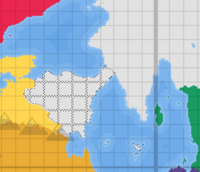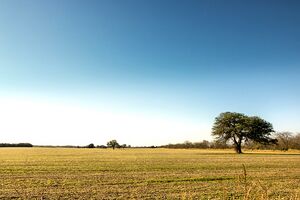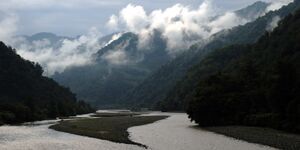Orlando: Difference between revisions
| (One intermediate revision by the same user not shown) | |||
| Line 145: | Line 145: | ||
! Name !! Population !! Land Area !! Population Density !! Capital | ! Name !! Population !! Land Area !! Population Density !! Capital | ||
|- | |- | ||
| Greater Hartridge || 6.9 million || 1,981 sq mi || 3,483.1 people per sq mi || | | Greater Hartridge || 6.9 million || 1,981 sq mi || 3,483.1 people per sq mi || Hartridge | ||
|- | |- | ||
| Greater Rosalina || 5.7 million || 2,163 sq mi || 2,635.2 people per sq mi || | | Greater Rosalina || 5.7 million || 2,163 sq mi || 2,635.2 people per sq mi || Rosalina | ||
|- | |- | ||
| South East || 2.3 million || 1,700 sq mi || 1,353 people per sq mi || | | South East || 2.3 million || 1,700 sq mi || 1,353 people per sq mi || Jervis | ||
|- | |- | ||
| North East || 1.9 million || 1,900 sq mi || 1,000 people per sq mi || | | North East || 1.9 million || 1,900 sq mi || 1,000 people per sq mi || Porto | ||
|- | |- | ||
| Alpine || 935,000 || 8,900 sq mi || 105 people per sq mi || | | Alpine || 935,000 || 8,900 sq mi || 105 people per sq mi || New Verdun | ||
|- | |- | ||
| North West || 2.1 million || 5,600 sq mi || | | North West || 2.1 million || 5,600 sq mi || 375 people per sq mi || Bella Costa | ||
|- | |- | ||
| South West || 1.8 million || 9,900 sq mi || | | South West || 1.8 million || 9,900 sq mi || 182 people per sq mi || Bohemian Bay | ||
|- | |- | ||
| Central || 1.1 million || 14,000 sq mi || | | Central || 1.1 million || 14,000 sq mi || 79 people per sq mi || Nero | ||
|- | |- | ||
| South Central || 1.4 million || 16,556 sq mi || | | South Central || 1.4 million || 16,556 sq mi || 85 people per sq mi || Berman | ||
|} | |} | ||
Latest revision as of 16:49, 18 December 2024
United Provinces of Orlando | |
|---|---|
|
Flag | |
 | |
| Capital | Rosalina |
| Largest | Hartridge |
| Official languages | Common, Orlandoan |
| Ethnic groups (2024) |
|
| Religion (2024) |
|
| Demonym(s) | Orlandoan |
| Government | Unitary Presidential Republic |
• President | Josheph Remez |
• Vice President | Edward Petro |
| Legislature | National Assembly |
| Area | |
• | 62,700 sq mi (162,000 km2) |
| Population | |
• 2024 estimate | 24,135,000 |
• 2020 census | 23,380,000 |
• Density | 385/sq mi (148.6/km2) |
| GDP (nominal) | 2024 estimate |
• Total | ACU 579.24 billion |
• Per capita | ACU 24,000 |
| Gini (2024) | 29.9 low |
| HDI (2024) | very high |
| Currency | Orlandoan Glider (ORG) |
| Time zone | Orlando Standard Time |
| Driving side | right |
Orlando or officially United Provinces of Orlando is a unitary presidential republic in Western Olivacia. The country is home to 24,135,000 inhabitants. The land area of the country is 62,700 sq mi (162,000 sq km) in area. The major cities include the largest city of Hartridge and the second largest city and capital of Rosalina, the third largest city of Jervis. The country drives on the left.
History
Demographics
Geography
The geography of Orlando is diverse. Majority of the population lives along the coasts of the country. The main geographic features of the country are the Grand Pans plains and the Orlandoan Alps. The Grand Pans plains is the dominate feature of the country taking up 75% of the country. The area is known to be fertile farmland. The land is largely flat grasslands. There are some hilly areas, however the hills do not exceed 2,000 feet (600 meters) in elevation. The other geographic feature is the Orlandoan Alps and coniferous rainforest. The tallest mountain in the country is located here, known as Mount Patriot standing at 9,750 feet or 2,972 meters. The Orlandoan Alps and forest are located along the southeastern part of the country and the Floridia Islands.
Climate
The climate of the United Provinces of Orlando is primarily humid subtropical. With hot and humid summers with plentiful rainfall and mild to cool winters. The southern Orlandoan Alps divide the country into areas. The areas along the southern coast with the Orlandoan Alps and the Florida Islands see a cooler wetter climate than the Grand Pans plains. As a result of Orographic Effect the region sees heavy rainfall throughout the year. Rainfall can range from 70 in (1,778 mm) to 120 in (3,048 mm). Summer temperatures can range from 77 degrees F (25 degrees C) to 82 degrees F (28 degrees C). Humid conditions are common for the area with low temperatures usually ranging between 59 degrees F (15 degrees C) to 68 degrees (20 degrees C). The mountains usually have Oceanic to Subpolar Oceanic. During the winter temperatures can range from 50 degrees F (10 degrees C) or colder in some rural areas to 59 degrees F (15 degrees C) and snow can occur in the mountains. The Grand Pans plains can see summer temperatures range from 86 degrees F (30 degrees C) to 92 degrees F (33 degrees C) with ample rainfall in the form of afternoon thunderstorms. Temperatures during the winter can be mild ranging from 59 degrees F (15 degrees C) to 68 degrees F (20 degrees C). Rainfall is less common during the winter. Rainfall as a whole can range from 40 to 50 in (1,016 mm to 1,270 mm). The hottest temperature ever recorded in the country was recorded here at 113 degrees F (45 degrees C).
Administrative Regions
| Name | Population | Land Area | Population Density | Capital |
|---|---|---|---|---|
| Greater Hartridge | 6.9 million | 1,981 sq mi | 3,483.1 people per sq mi | Hartridge |
| Greater Rosalina | 5.7 million | 2,163 sq mi | 2,635.2 people per sq mi | Rosalina |
| South East | 2.3 million | 1,700 sq mi | 1,353 people per sq mi | Jervis |
| North East | 1.9 million | 1,900 sq mi | 1,000 people per sq mi | Porto |
| Alpine | 935,000 | 8,900 sq mi | 105 people per sq mi | New Verdun |
| North West | 2.1 million | 5,600 sq mi | 375 people per sq mi | Bella Costa |
| South West | 1.8 million | 9,900 sq mi | 182 people per sq mi | Bohemian Bay |
| Central | 1.1 million | 14,000 sq mi | 79 people per sq mi | Nero |
| South Central | 1.4 million | 16,556 sq mi | 85 people per sq mi | Berman |
| Rank | Province | Pop. | |||||||
|---|---|---|---|---|---|---|---|---|---|
| 1 | [[Hartridge]] | [[]] | 1,100,000 | ||||||
| 2 | Rosalina | [[]] | 663,000 | ||||||
| 3 | Jervis | [[]] | 568,000 | ||||||
| 4 | Bella Costa | [[]] | 396,000 | ||||||
| 5 | Porto | [[]] | 303,000 | ||||||
| 6 | Bohemian Bay | [[]] | 254,000 | ||||||
| 7 | Nero | [[]] | 207,000 | ||||||
| 8 | Berman | [[]] | 192,000 | ||||||
| 9 | Westberg | [[]] | 189,000 | ||||||
| 10 | New Verdun | [[]] | 184,000 | ||||||
Government
Poltics
Supreme Court
National Assembly
President
Transportation
Education
Economy


